Hundreds of millions are suffering from substance abuse and addiction worldwide. In the U.S. alone, experts estimate that over 21 million Americans have at least one addiction issue.
However, illicit drug use is only one aspect of the problem. And as unfortunate as it sounds, substance abuse and mental illness often come in the same package.
For that reason, experts must provide remedies that don’t only target the addiction of a patient. Treatment programs must take mental health into account, addressing this co-occurrence.
Fortunately, you found this post.
As a provider of excellent and quality mental health and addiction treatment programs, we’re walking you through the steps in navigating this delicate issue.

How Are Mental Health Problems and Addiction Related?
Before we go into the topic of treatments, you must understand the profound relationship between mental illness and drug addiction.
Understanding Addiction
Addiction is the inability to stop using one or more substances or behave in a certain way. The compulsion is so potent that a person cannot stop regardless of the physical or psychological harm the substance or behavior causes.
In short, it’s a chronic medical condition affecting the brain and the patient’s decision-making abilities. It rewires the body, making the object of addiction impossible to resist.
That said, it’s worth noting that addiction doesn’t only refer to substance dependence and can manifest in several ways. In fact, some addictions include seemingly normal activities like gambling, eating, or working.
However, this potent urge will ultimately lead to alarming problems affecting the individual’s quality of life. It can negatively impact a person’s career, social, and family life, and even their ability to function daily.
Still, addiction remains a treatable condition. Prevention and treatment programs addressing substance abuse are generally as successful as any other chronic disease.
Understanding Mental Illness
Mental illness is a complex condition involving the person’s emotions, behavior, and thinking. And according to the WHO, one in eight people, or over 970 million people worldwide, suffers from this medical disorder.
As with other visible diseases, mental illness can seriously harm an individual’s way of life. And the issue can take more than one form.
Anxiety, depression, and bipolar disorders are among the top five most common mental disorders. PTSD, eating disorders, disruptive, dissociative, and neurodevelopmental issues are also common.
Unfortunately, no one is totally immune from mental health problems. However, factors like genes, environment, preexisting health conditions, and past traumas can contribute.
As with addiction, mental health concerns are treatable with expert care and advice. Therapy, for instance, has been proven to benefit patients’ quality of life, including their relationships.
Dual Diagnosis In Drug-Addicted Patients
As you can see, there are many overlapping qualities between addiction and mental illness. But that’s only scratching the surface of the relationship between addiction and mental disorders.
The fact is, many drug abusers often simultaneously suffer from severe mental health ailments. And this condition is what we call a dual diagnosis or co-occurring disorder.
In a co-occurring situation, addiction and mental issues can exhibit unique and separate symptoms. This complex scenario hampers the patient’s ability to function more than if they have only one of these disorders.

To make matters worse, mental illness and addiction usually affect one another.
Drug abuse is typically more chronic in patients with untreated mental health issues. Conversely, mental problems are more severe in persons with chronic drug abuse.
This fact relates to the Journal of the American Medical Associationreport that roughly half of the population with mental health conditions has substance abuse problems.
In the same report, the Journal noted that around 37% of alcoholics and 53% of substance abusers have at least one grave mental health condition.
Mental Disorders Associated with Drug Abuse
Here’s a list of the mental disorders linked with chronic drug abuse according to experts:
- Obsessive-compulsive disorders
- Phobias
- Antisocial personality disorders
- Manic episodes
- Schizophrenia
- Panic disorders
- Severe depressive episodes
They also observed general anxiety disorders, bipolar conditions, attention deficit hyperactivity disorder (ADHD), and post-traumatic stress disorder (PTSD).
Signs and Symptoms of Co-Occurring Disorders
The signs and symptoms of co-occurring disorders typically vary from the specific substance used and the underlying mental health condition of the individual.
Symptoms experienced by co-occurring disorder patients can include:
- Unexplained changes in behavior
- Avoidance of social events and activities
- Poor health and hygiene routines
- Difficulty in managing daily tasks and responsibilities
- Cognitive impairments
- Changes in sleeping and eating habits
- Periods of erratic or compulsive behaviors
- Sudden mood swings, irritability, and emotional outbursts
Given these symptoms, people with dual diagnosis are more prone to additional problems such as social isolation, family issues, grave medical illnesses, symptomatic relapses, and even hospitalizations.

Approaches to Mental Health and Addiction Treatment
Anyone suffering from substance abuse on top of mental health conditions should remedy both. For this reason, integrated approaches are the best possible methods to treat dual diagnosis.
But what is an integrated approach? And how does it help to recover patients?
To put it simply, an integrated treatment program targets the patient’s mental health and addiction. It can include a combination of medication, therapy, individual or group counseling, and peer support.
That said, every patient has issues unique to others. So, treatment can vary depending on factors like severity, lifestyle, environment, and exposure period.
Components of the Mental Health and Addiction Treatment Program
Here are some of the most common mental health and addiction treatments available:
Therapy
Counseling or talk therapy are effective forms of treatment for both substance abuse and mental health disorders. In fact, studies suggest that 75% of patients who receive therapy as a remedy experience relief and improved life functions.
Through counseling, patients can gain fresh perspectives about their health and lifestyle. Talk therapies also help identify destructive patterns and formulate coping strategies with the help of experts and therapists.
Medication
In cases of severe ailment, your treatment provider can prescribe medication on top of talk therapies. Drug-assisted remedies often target the symptoms of your health concern to ease your healing process.
For instance, patients experiencing severe depression can receive antidepressants to minimize the episodes. Individuals with behavioral symptoms, such as manic and panic attacks, can also get mood stabilizers.
Detoxification
Ridding your body of the substance is a crucial step in addiction recovery. It’s especially true for patients suffering from the disorder for an extended period.
Detoxification with the help of experts is crucial as they help facilitate recovery. Rehabilitation centers provide services to keep you comfortable and safe while dealing with the symptoms of the detoxification process.
Peer Support
Peer support is a practical method to reinforce recovery for healing mental health and substance abuse patients. In this treatment approach, people use their shared experiences and knowledge to help each other.
Countless studies and research prove the effectiveness of peer support services in the recovery process. It’s an essential resource for empowerment, engagement, companionship, and improved self-esteem for recovering individuals.

The Role of Family Relationships in Recovery
Of course, despite the effective treatments available, we can’t overlook the crucial role of family and friends in each patient’s recovery journey. It goes for both mental health patients and rehabilitating drug abusers.
Healing from co-occurring disorders is a daunting task for any patient. Thus, having encouragement from beloved family members and friends can make a world of difference.
For example, a parent can become a supportive but firm hand to guide their loved one. Attending support groups and family counseling sessions also displays transparent support.
Remember, mental health and substance abuse disorders affect everyone in the family. So, involvement from all the members is part of the first step to full recovery.
Garden State Detox Overview
Our Garden State Detox Center in New Jersey provides holistic and individualized treatment for clients suffering from co-occurring disorders. We deliver treatment services tailored to each patient’s unique needs.
Garden State Detox’s services include medical detox for alcoholism and opioid, treatment programs, counseling, and therapies. Most importantly, our comprehensive addiction rehabilitation methodologies involve mental health and wellness initiatives.
Top-notch facilities ensure all clients are safe and comfortable while recovering. And our caring and experienced medical teams are always ready to assist.
The Garden State Detox Center has helped hundreds of families heal from the harmful effects of addiction. We offer care and support beyond physical stability, setting the foundation for your long-term sobriety.

How to Enroll in Garden State Detox
Enrolling in the Garden State Detox is as easy as three steps: confidential evaluation, insurance verification, and intake assessment. Call our hotline and talk with our specialists to kickstart your admission.
Final Thoughts
Did you know that of the 21 million Americans who suffer from addiction, only 10% receive proper treatment? This mind-boggling statistic shows how far back we are in treating this decades-long issue for good.
Remember, seek professional help if you or any of your friends and loved ones experience co-occurring disorders. Recovering from these chronic illnesses may take time, commitment, and courage, but they’re treatable.
Start your treatment today!


